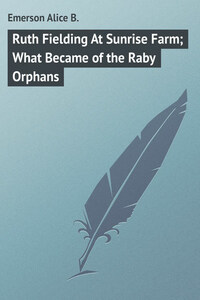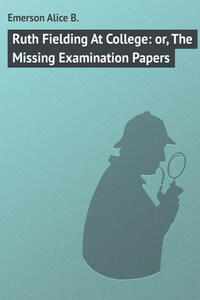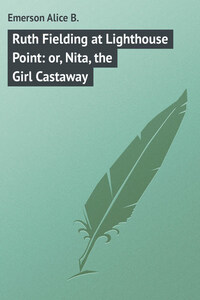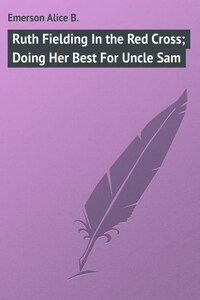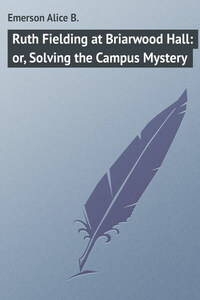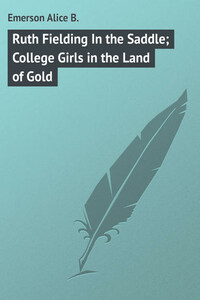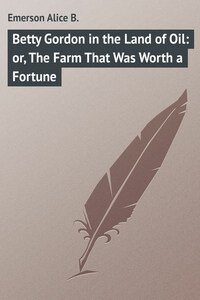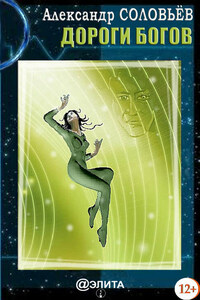CHAPTER I – SWEET BRIARS AND SOUR PICKLES
The single gas jet burning at the end of the corridor was so dim and made so flickering a light that it added more to the shadows of the passage than it provided illumination. It was hard to discover which were realities and which shadows in the long gallery.
Not a ray of light appeared at any of the transoms over the dormitory doors; yet that might not mean that there were no lights burning within the duo and quartette rooms in the East Dormitory of Briarwood Hall. There were ways of shrouding the telltale transoms and – without doubt – the members of the advanced junior classes had learned such little tricks of the trade of being a schoolgirl.
At one door – and it was the portal of the largest “quartette” room on the floor – a tall figure kept guard. At first this figure was so silent and motionless that it seemed like a shadow only. But when another shadow crept toward it, rustling along the wall on tiptoe, the guard demanded, hissingly:
“S-s-stop! who goes there?”
“Oh-oo! How you startled me, Madge Steele!”
“Sh!” commanded the guard. “Who goes there?”
“Why – why – It’s I.”
“Give the password instantly. Answer!” commanded the guard again, and with some vexation. “‘I’ isn’t anybody.”
“Oh, indeed? Let me tell you that this ‘I’ is somebody – according to the gym. scales. I gained three pounds over the Easter holidays,” said “Heavy” Jennie Stone, who had begun her reply with a giggle, but ended it with a sigh.
“Password, Miss!” snapped the guard, grimly.
“Oh! of course!” Then the fat girl whispered shrilly: “‘Sincerity – befriend.’ That is what ‘S. B.’ stands for, I s’pose. Sweetbriars! and I have a big bag of sour pickles to offset the cloying sweetness of the Sweetbriars,” chuckled Heavy. “Besides, they say that vinegar pickles will make you thin – ”
“I don’t need them for that purpose,” admitted the guard at the door, still in a whisper, but accepting the large, “warty” pickle Heavy thrust into her hand.
“Will make me thin, then,” agreed the other. “Let me in, Madge.”
The guard, sucking the pickle convulsively the while, opened the door just a little way. A blanket had been hung on a frame inside in such a manner that scarcely a gleam of lamplight reached the corridor when the door was open.
“Pass the Sweetbriar!” choked Madge, with her mouth full and the tears running down her cheeks. “My goodness, Jennie Stone! these pickles are right out of vitriol!”
“Sour, aren’t they?” chuckled Heavy. “I handed you a real one for fair, that time, didn’t I, Madge?”
Then she tried to sidle through the narrow opening, got stuck, and was urged on by Madge pushing her. With a bang – punctuated by a chorus of muffled exclamations from the girls already assembled – she tore away the frame and the blanket and got through.
“Shut the door, quick, guard!” exclaimed Helen Cameron.
“Of course, that would be Heavy – entering like a female Samson and tearing down the pillars of the temple,” snapped Mercy Curtis, the lame girl, in her sharp way.
“Please repair the damage, Helen,” said Ruth Fielding, who presided at the far end of the room, sitting cross-legged on one of the beds.
The other girls were arranged on the chairs, or upon the floor before her. There was a goodly number of them, and they now included most of the members of the secret society known at Briarwood Hall as the “S. B.’s.”
Ruth herself was a bright, brown-haired girl who, without possessing many pretensions to real beauty of feature, still was quite good to look at and proved particularly charming when one grew to know her well.
She was rather plump, happy of disposition, and with the kindest heart in the world. She made both friends and enemies. No person of real character can escape being disliked, now and then, by those of envious disposition.
Ruth Fielding succeeded, usually, in winning to her those who at first disliked her. And this, I claim, is a better gift than that of being universally popular from the start.
Ruth had come from her old home in Darrowtown, where her parents died, two years before, to the Red Mill on the Lumano River, where her great-uncle, Jabez Potter, the miller, was inclined at first to shelter her only as an object of his grudging charity. In the first volume of this series, however, entitled “Ruth Fielding of the Red Mill; Or, Jasper Parloe’s Secret,” the girl found her way – in a measure, at least – to the uncle’s crabbed heart.
Uncle Jabez was a just man, and he considered it his duty, when Helen Cameron, Ruth’s dearest friend, was sent to Briarwood Hall to school, to send Ruth to the same institution. In the second volume, “Ruth Fielding at Briarwood Hall; Or, Solving the Campus Mystery,” was related the adventures, friendships, rivalries, and fun of Ruth’s and Helen’s first term at the old school.
In “Ruth Fielding at Snow Camp; Or, Lost in the Backwoods,” was told the adventures of Ruth and her friends at the Camerons’ winter camp during the Christmas holidays. At the end of the first year of school, they all went to the seaside, to experience many adventures in “Ruth Fielding at Lighthouse Point; Or, Nita, the Girl Castaway,” the fourth volume of the series.
